
#ЦЕНТРАЛЬНЫЙ ФЕДЕРАЛЬНЫЙ ОКРУГ
Автор: Лейла Карипова
The stories of people just like us.
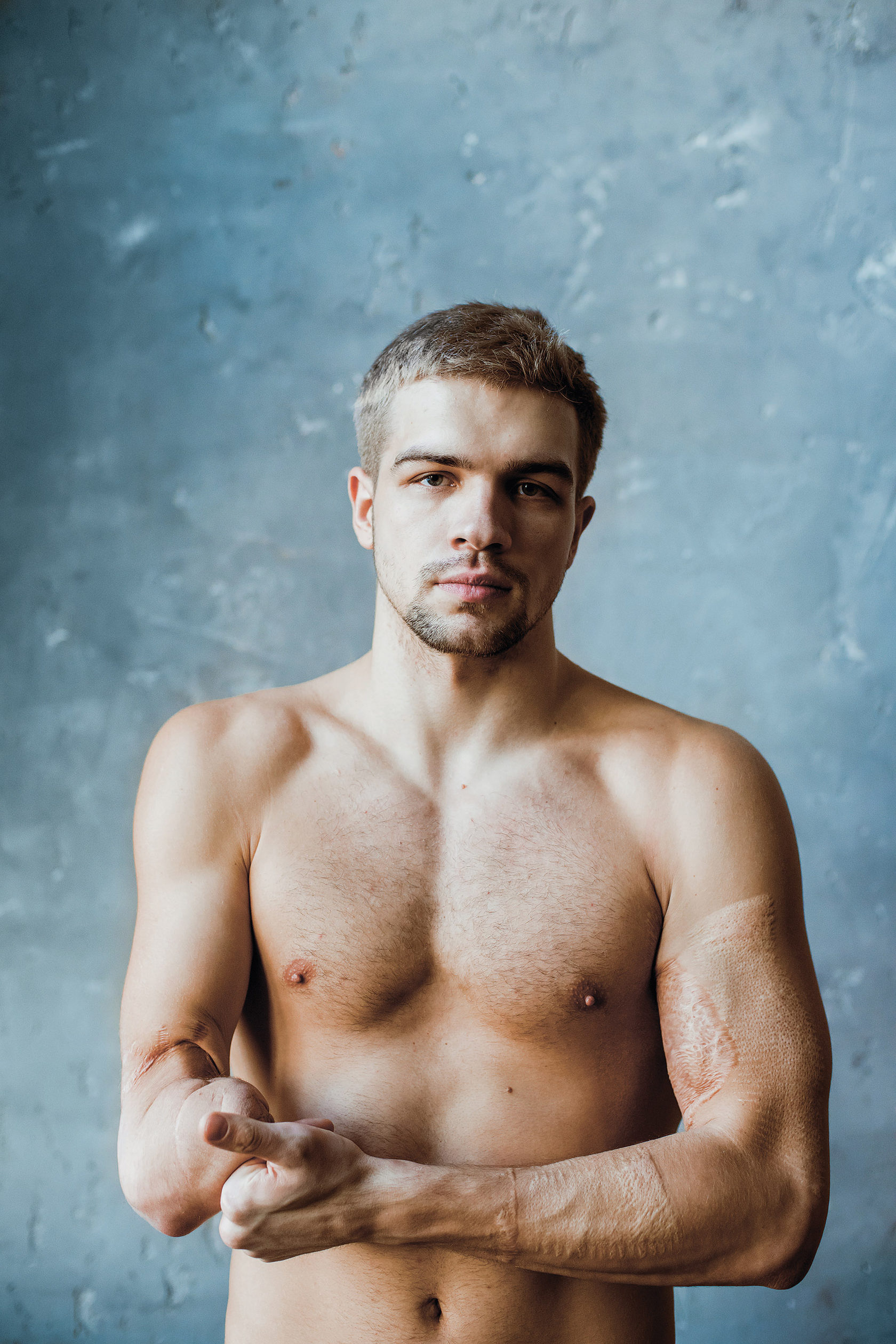
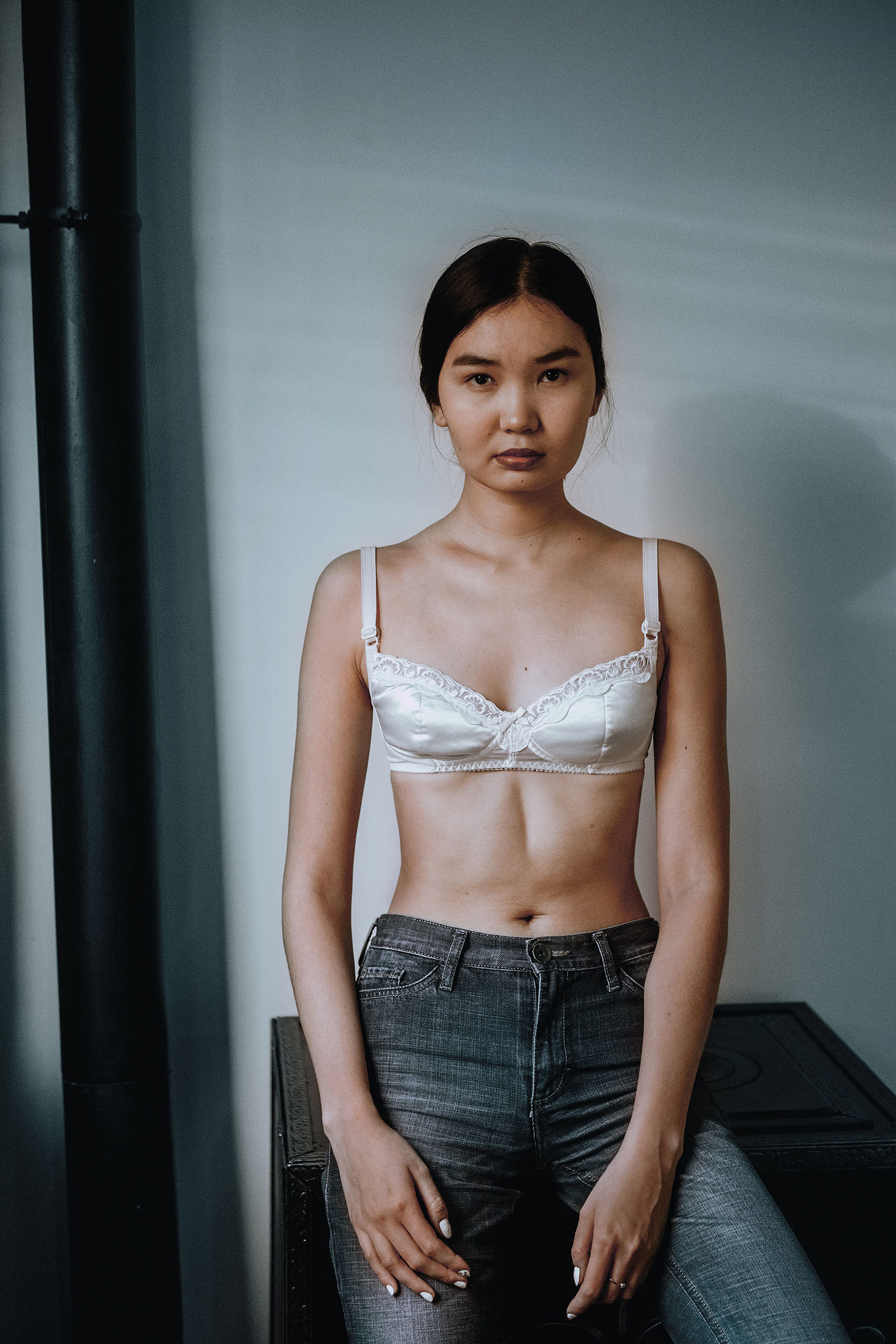
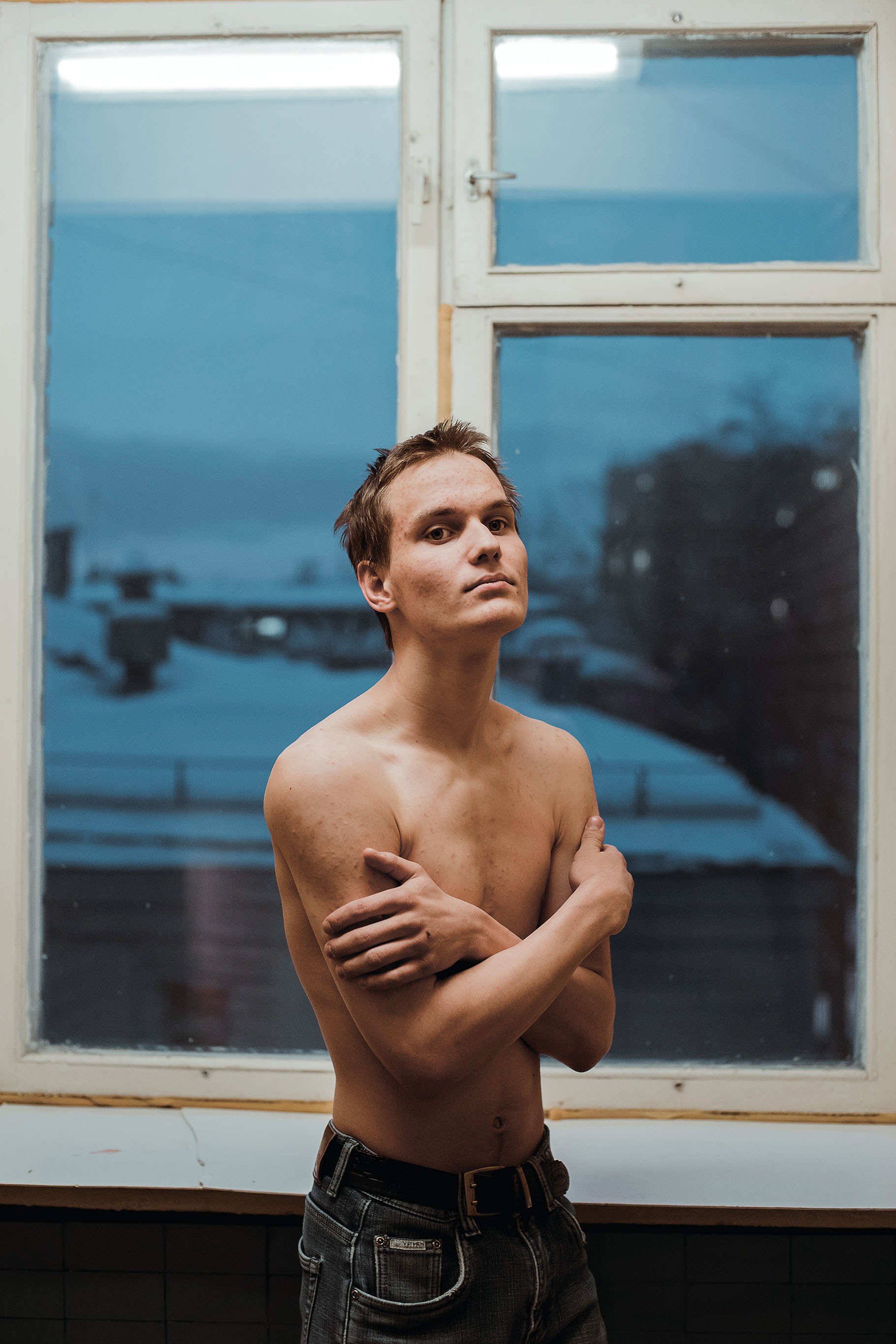
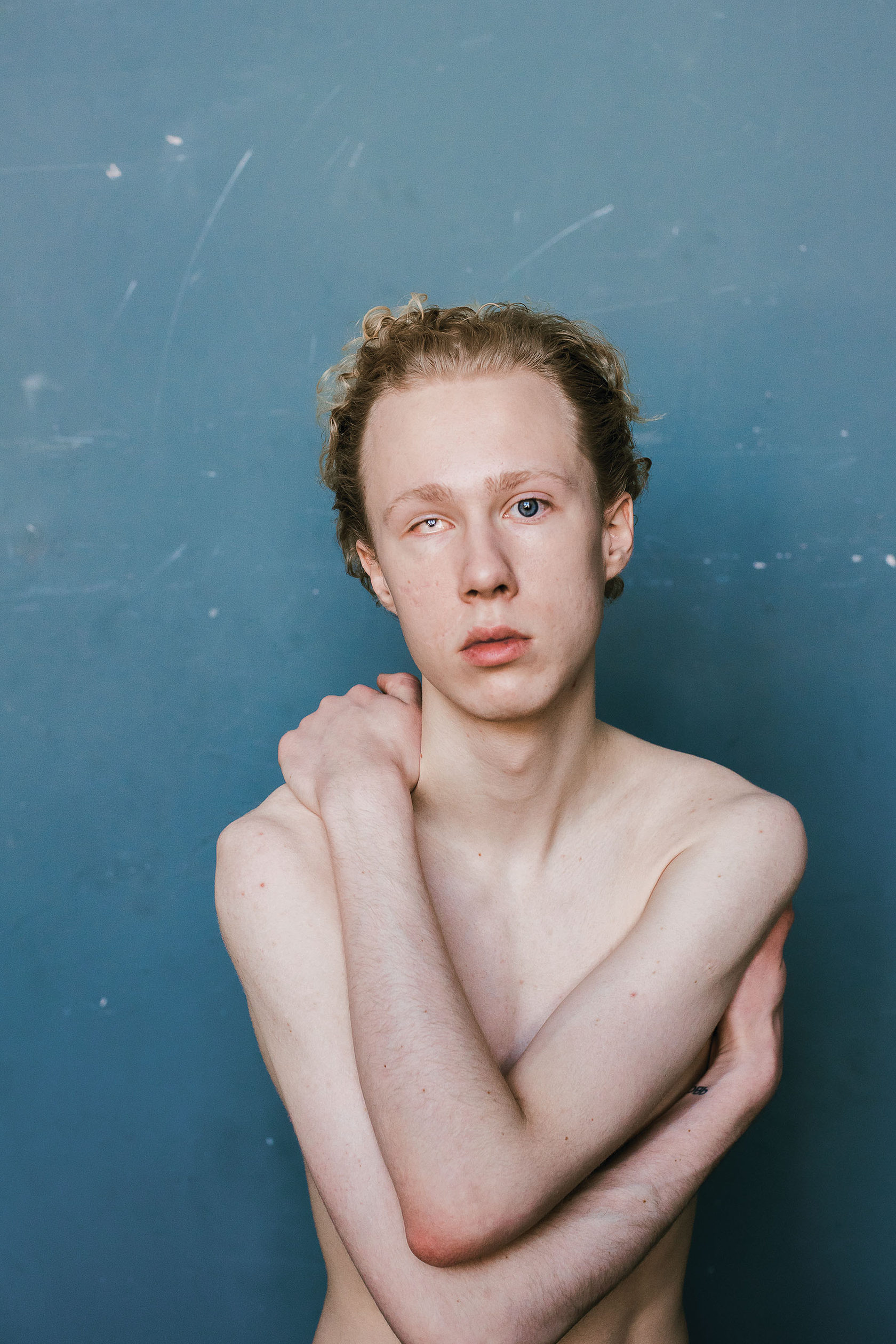
«Social dislocation» is a term coined by Lev Vygotsky, the psychologist, founder of cultural-historical theory, who believed that defectiveness is a social concept.
«If psychologically a physical defect means "social dislocation", then social attitude to it resembles an attempt to fix it, just like a real physical dislocation or a disordered organ. It is in our powers to eliminate this practice of calling people defective in the society. We can heal people through changes in social and educational spheres sometimes even better than medically and biologically. Defectiveness will be wiped out by social education. Then a blind kid will never be called defective, just blind, and a deaf kid will be called deaf, and nothing else».
«Social dislocation» is a project that presents portraits of young people, who faced agressive social reaction in their childhood and youth, that affected their social adaptation. It touches upon the topics of discrimination and adequate attitude to people with mental and physical defects. The characters live through hardships and develop strength in character.
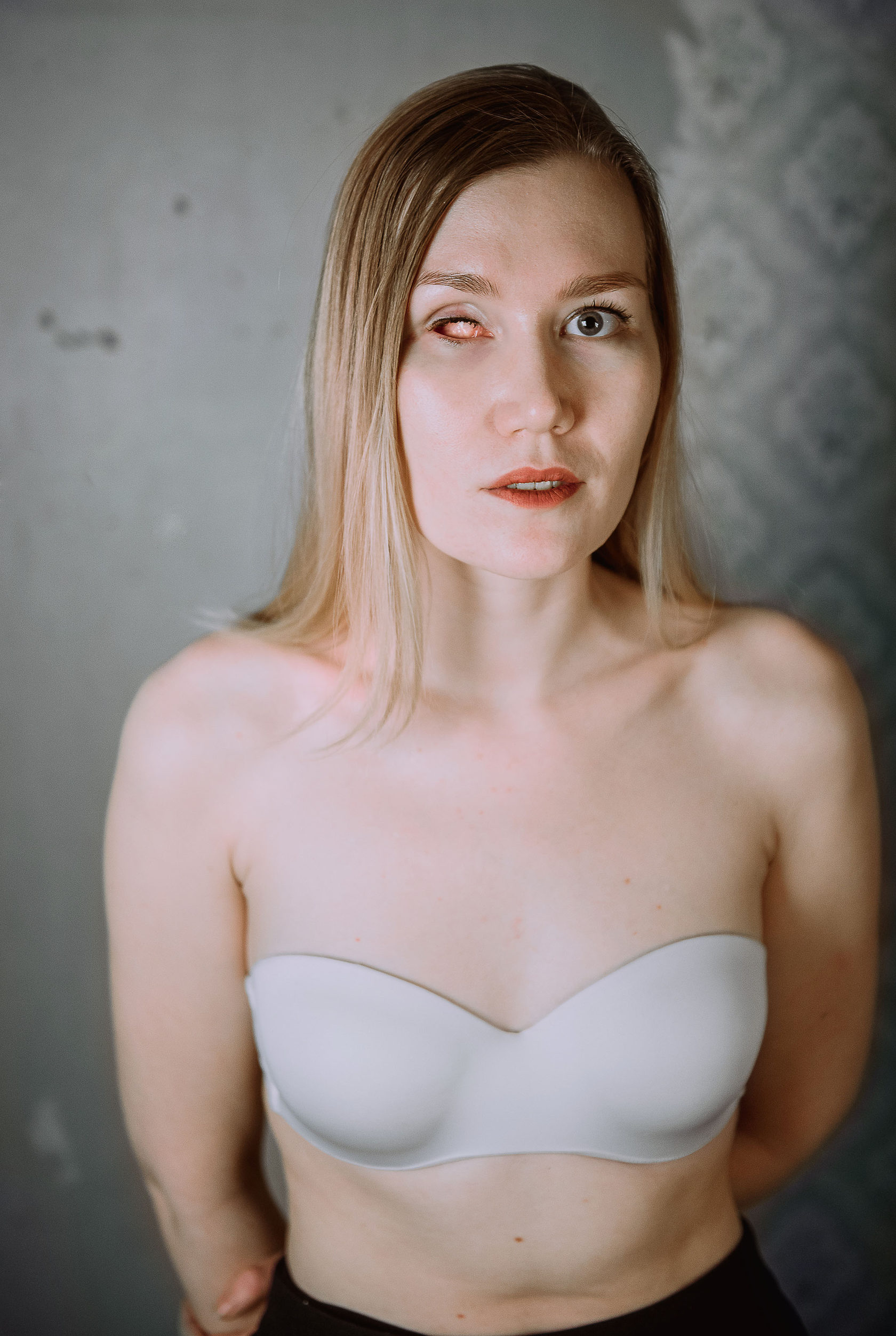
My name is Julia Timofeeva. I`m 26. I work as a line manager in an IT-company in Astrakhan.
It didn`t happen overnight. I got into an accident when I was 4. The doctors did a great job: they sewed it up, put in an artificial lens. Then I realized I want to get into sports, and chose weight lifting. That`s how I got a retinal detachment, because of the heavy physical activity.
Some people ask impudently: «Are you skew-eyed?» or «What`s with the eye?». I`ve learnt to ignore that.
My life isn`t that different from other people. It`s just that I have to turn my head to look to the right. I can`t say I`m 100% comfortable, and, of course, I wouldn`t tell anyone to cut their eyes out cause it changes nothing.
But the truth is that you get used to that, and I don`t think about it every second of my life.
When I saw myself after the surgery for the first time I said that now no one will ever want to marry me. The recovery period was long.
Physical rehabilitation was faster than psychological. When you`re 16 you see things differently. For two years I`ve been trying to get used to how I look, - seeing myself without the prosthesis evoked particular emotions in me. Ironically, I got married. My husband takes my prosthesis off to wash it because I don`t like doing it myself. He says, his wife is a constructor kit (laughing). He`s okay about the whole thing.
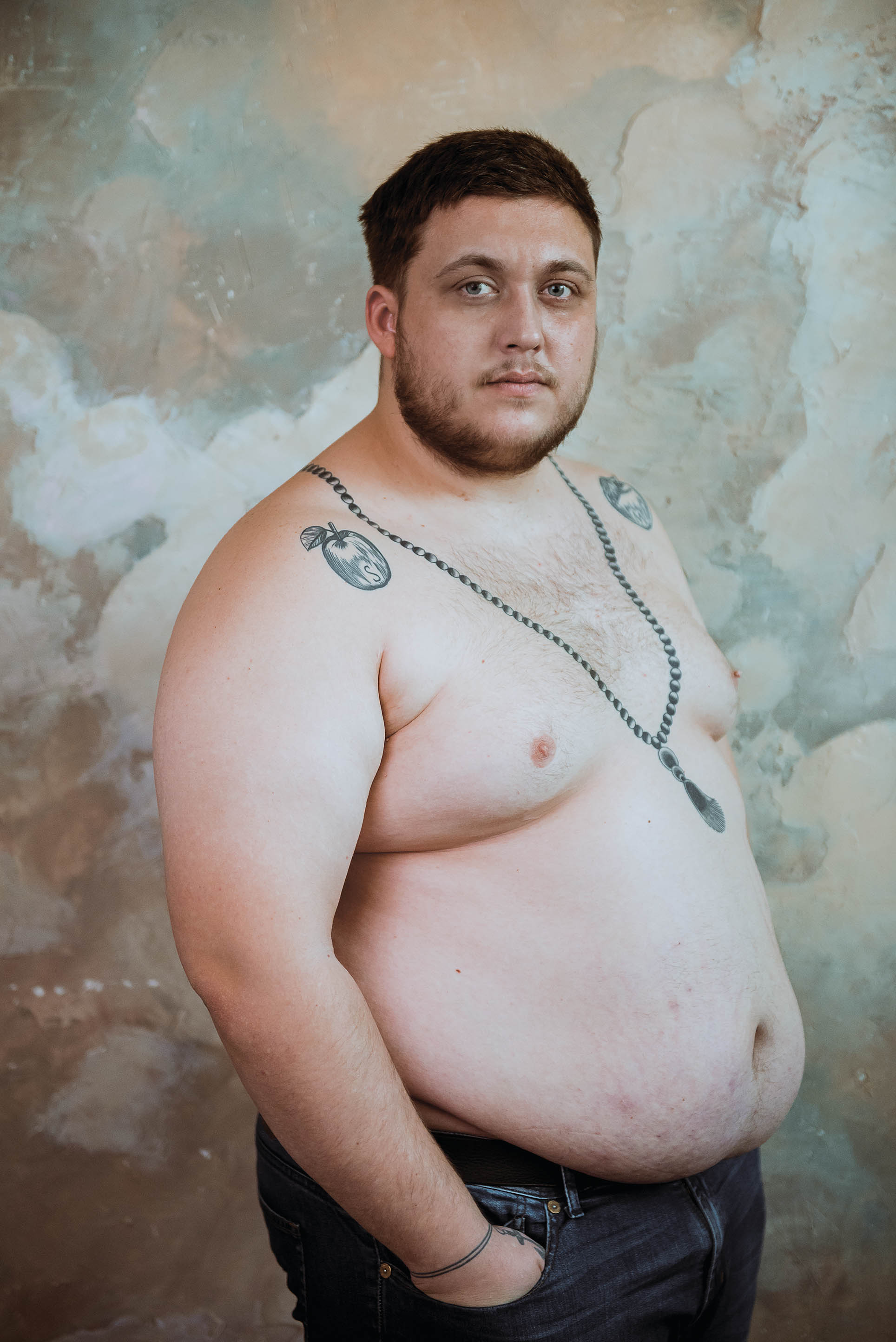
Hi, I`m Anton Nikulin. I live and work in Astrakhan. I have a hypothalamic syndrome. Actually, that is a rather common disease. It`s just that not many people know about it. You come to the hospital and the doctors write in your card «obesity», you go to the gym, go on a diet, until same doctors in the same hospital diagnose you with the syndrome and tell you that it`s there`s no cure for it.
Someone just sees my photo on a public page and writes: "Stop overeating! Go to the gym". It`s a matter of godd manners and education. No kid would ever make up some insults on the rounds of somebody`s weight or nationality or... whatever! Kids are very kind. I know because I`ve got two. If you give the right education for you kid, everything`s gonna be fine. But if you`re an amoral cretin, your kid will copy your behavior.
I love life and I see no reason in feeling the other way round. I don`t understand people who say: «Everything is awful, I`ve got no job, no women». I strongly believe that a man is always responsible for what is happening in his life, and he`s also the one to blame if something goes wrong. Once I was in a cafe with my wife. I had to leave for a second. And when I came back she told me that people at the table near us were talking about how miserable I am. Come on! I`m happy! I`ve got a great job and a lovely family! My life is amazing!
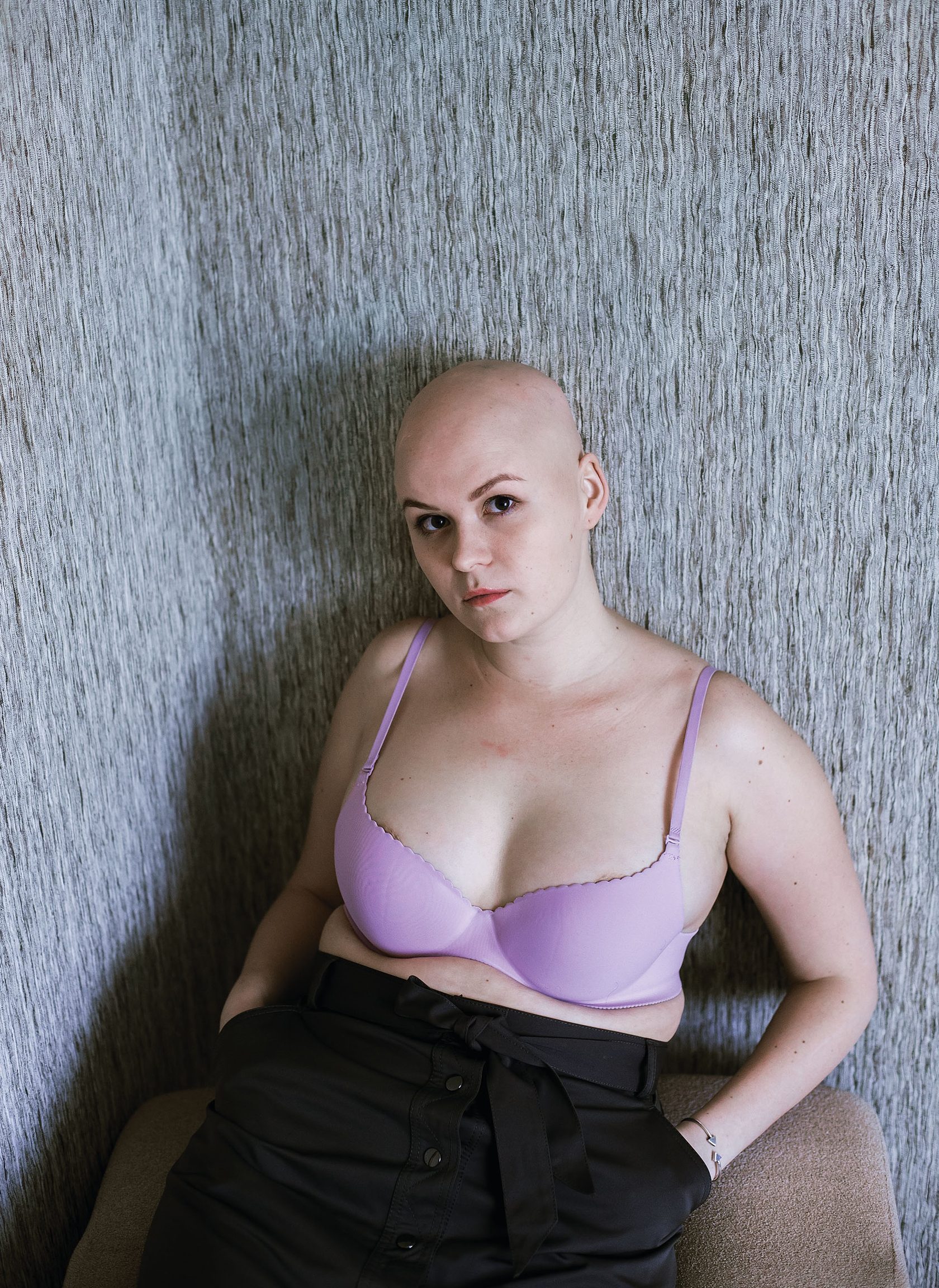
My name is Christina. I`m 23. I work as a landscaper in Moscow. I look a bit strange. Everybody thinks it`s my style, but it`s actually a combination of style and my nature. When I was about 10 I was diagnosed with alopecia areata. It is a disease when you loose your hair. I`ve been bold the most of my life.
Everything gets easier eventually, you forget, that something is wrong with you. It is hard being a bold girl. But it really shaped my identity. I think such hardships only make you stronger. If you got used to looking different, you can get used to other things pretty fast too.
It doesn`t disturb me at all. If you can stay your true self, it won`t affect your personal life in any way. Even the opposite, I get more attention. If you`re comfortable with yourself, everyone forgets you look somehow different. People can point the finger, stuck the tongue out - it can still hurt me, but it happens very rarely. You should learn not to pay attention to it or take it seriously.
There are communities for bold people. I don`t like them because they make differentiation based on appearance. I don`t see why we should accentuate the fact that it is the disease. Yes, I am a bold girl, so what? I like it better just being myself. Without thinking that I am sick.

Hi! I`m Philip. I`m 19 and I`m from Novosibirsk. I`m a photographer and I`m studying to be a cameraman. It happened after the first grade. It was the last day of holidays, I was walking by the house. There was a construction site, surrounded by a fence. The workers were burning garbage. Some foam tank exploded when I was passing by. That`s how I got these scars on my face and that`s why my eye looks like this.
When mom and I were in the hospital after the surgery, I came up to the mirror, I was curious to look at myself. Mom said: «Hurry up, get dressed, I don`t wanna see it!». And I said: «Come on, mom, it`s fun, there`s a new me!»
I can`t see with my right eye. I`d say that everything changed after the accident. I`ve got a feeling that something clicked in my head - I wasn`t really interested in anything before.
Don`t know if it`s connected directly, but I immediately wanted to do something different, something artistic. I talked my parents into taking me to art school. And my life sort of changed the direction.
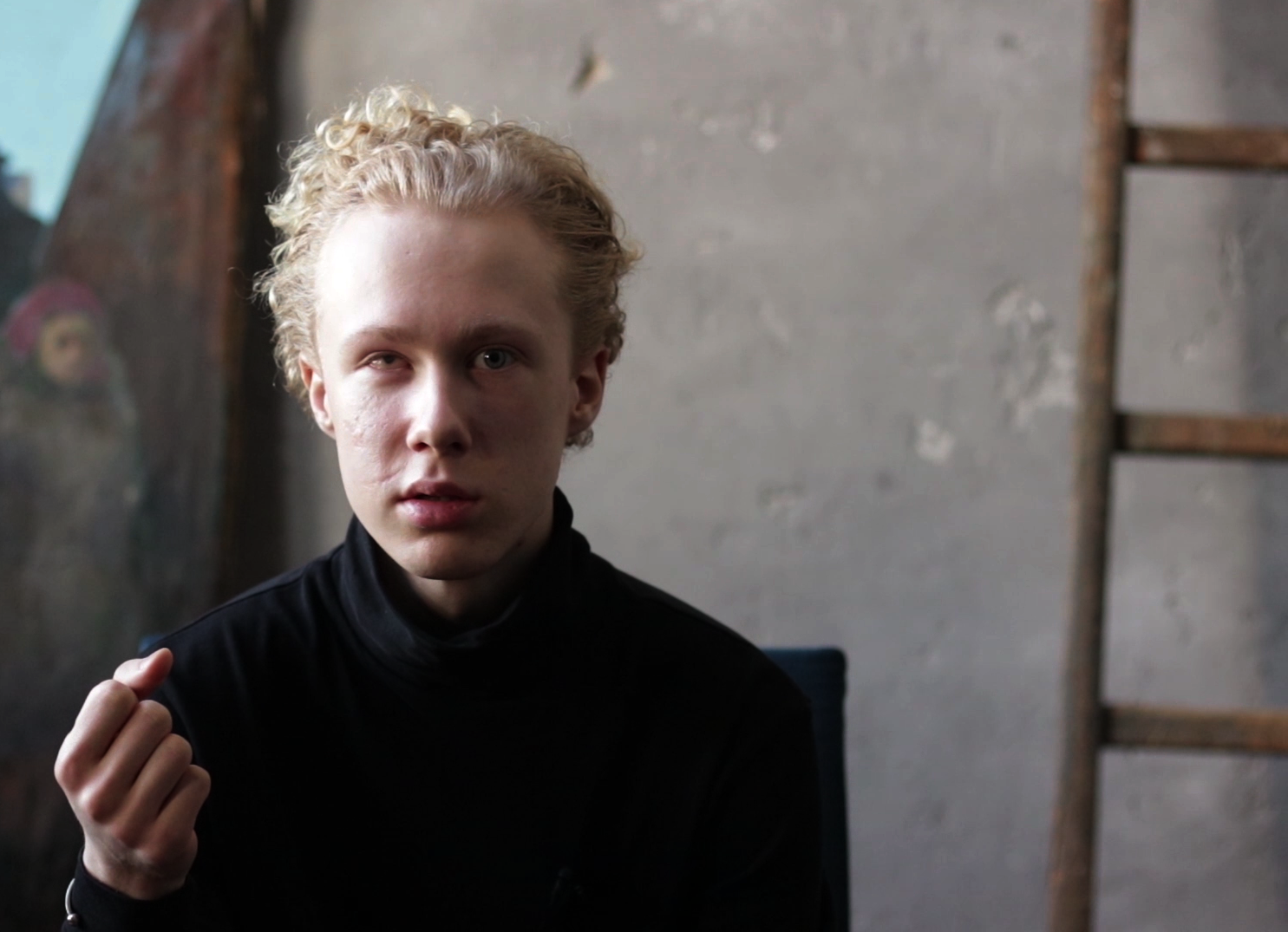
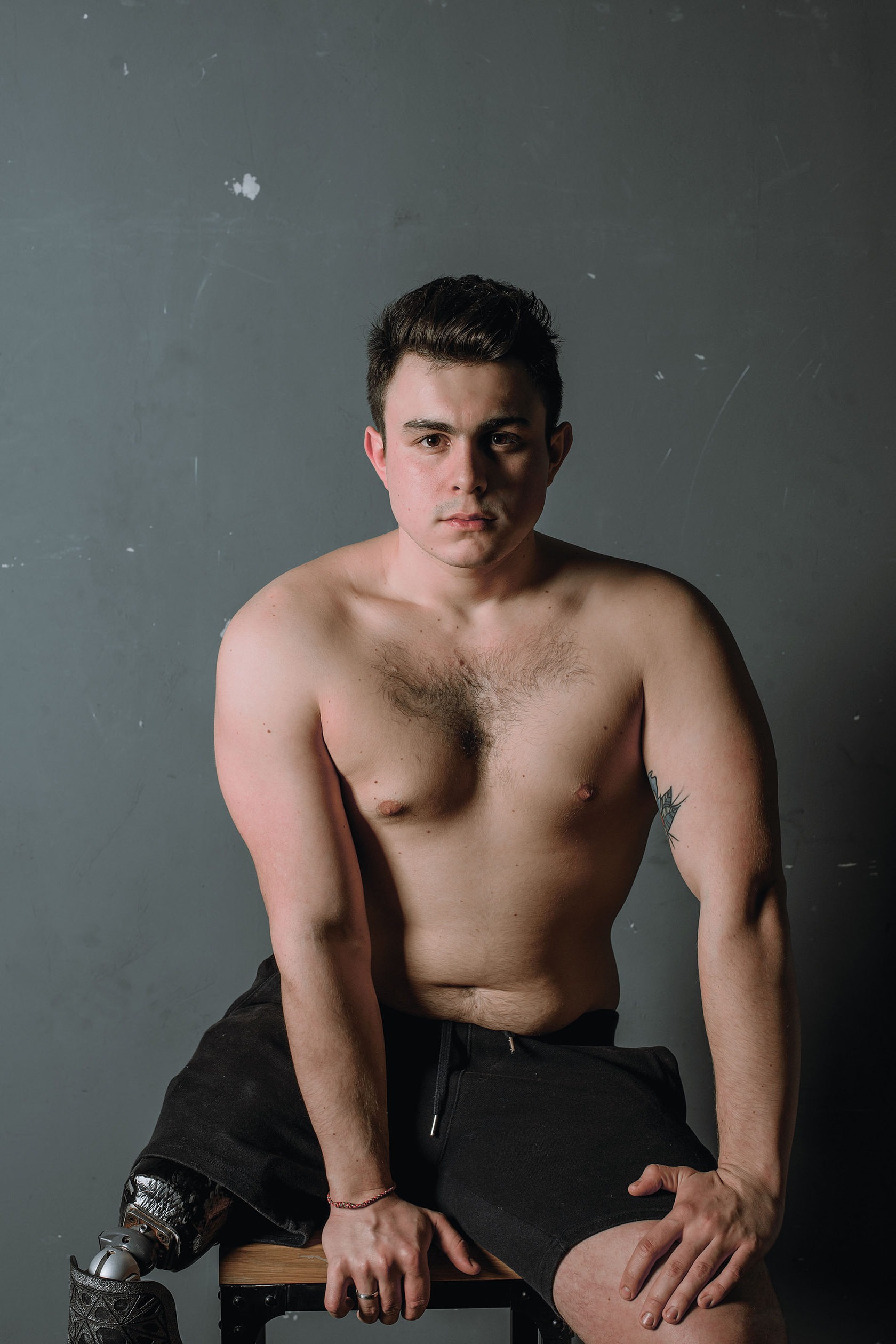
Hi, everyone! I`m Anton. I`m 22. I work in a construction company in Moscow. When I was 13 I`ve lost my leg - got run over by a motor boat. Three months later I started walking on prosthetic leg.
I haven`t felt any discomfort in communication with my peers. Probably, it all went smoothly because of my wonderful family, they helped me to adapt to new condition. I`ve never had any problems with friends, girlfriends, never. I asked my wife, how she reacted to my prosthesis when we first met. I felt like it was weird. She said she didn`t notice it at all. When something happens to people - some trauma or a disease - others turn away from them. I had it the other way round. It gave me strength. However strange it sounds, it even helped me in life.
When you walk with a help of crutches you get one reaction from people. You see pity in the eyes of adults and fear in the eyes of kids. It`s hard for someone who`s not psychologically ready to see this. Just think of it, you see a man and notice he doesn`t have a leg! I`m not ashamed of my prosthetic leg, I wear shorts and trainers. I often ride my gyroscooter in the park. It`s fun! People see that a guy lives a full life, enjoys it, smiles at them. And the looks are different in this case, it`s respect and thoughts like: «Would I be able to do the same?», «So cool!».

Hi. My name is Dayana Lidziyeva. I`m from Astrakhan. I study and work as a model. How do I stand out? It`s my thinness. My height is 183 cm and my weight is 55 kg. It`s a matter of genetics, nothing else. I`m not on any diets, neither do I promote any idea.
During my school years I`ve seen kid`s cruelty and it resulted in me having complexes. I was very very skinny. For instance, once I`ve had a conflict with a boy in high school, he was ready to hit me. He would pressure me because of my appearance, defects, as he put it. If one doesn`t have a decent education, moral education, the kid can grow up abusive.
At the end of 10th grade I`ve accepted myself, started going to model castings. I always hear people say something about my appearance. So many men, so many minds. You shouldn`t roll over to them.
I want to say to all the girls with delicate appearance - don`t take all this agression close to heart. Don`t feel embarrassed. You can always look positively at it and see the good side.
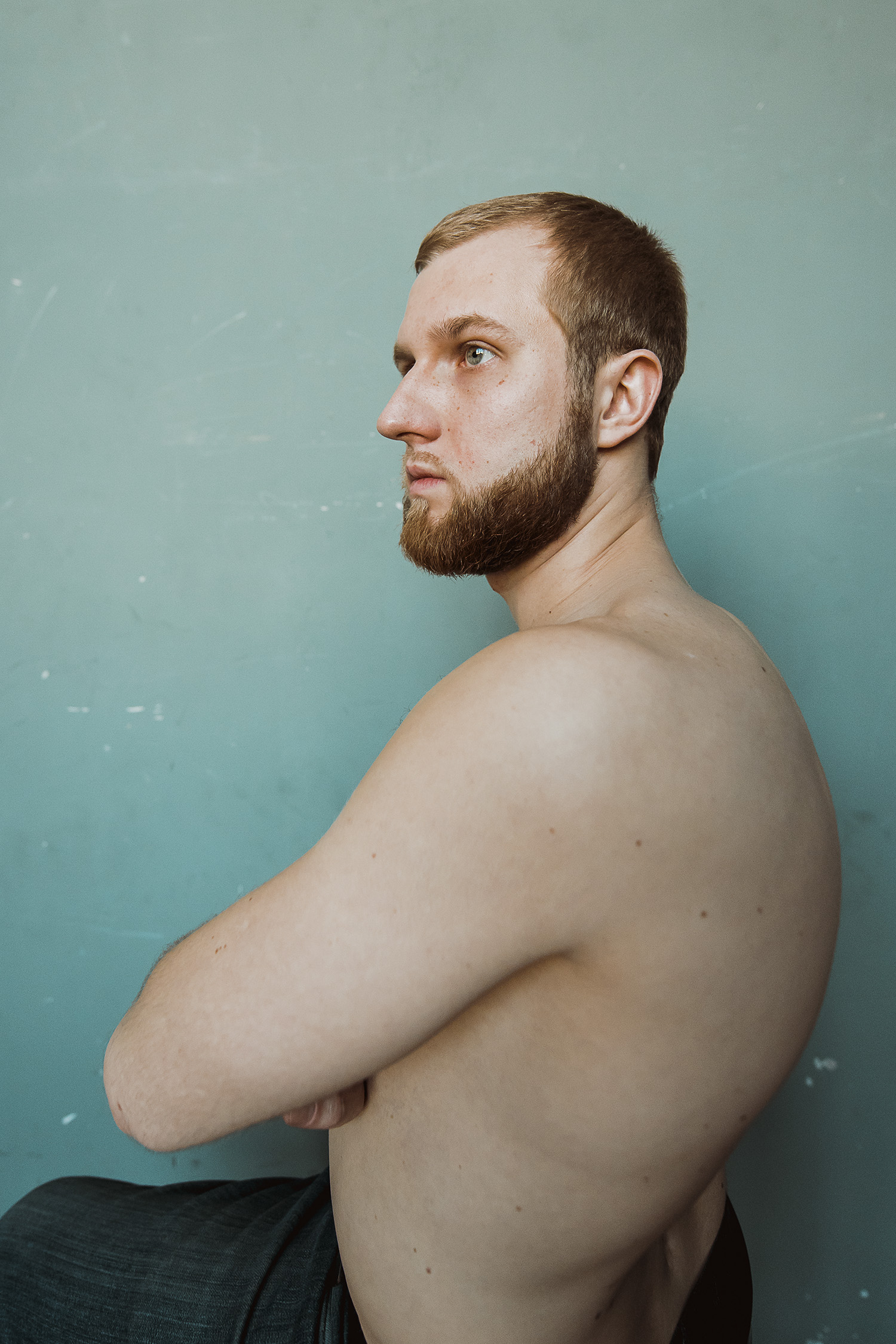
My name is Alexey Timofeev. I`m 24. I live in Moscow. For the last 10 years I`ve been working in business.
I`m quite successful for my age. My life has changed drastically when I was 4, I was diafnosed with cauda equina syndrome. It was diagnosed too late, in the last stage, when my whole spinal cord was infected with pus and my legs were not working.
When learnt to walk again, unfortunately, my left leg wasn`t moving. I can`t feel it and have trouble lifting it. That is why I`m still limping today.
My nickname at school was "Crutch". All the kids were laughing at me. They found it funny cause I was limping all the time. Today I`m trying my best for people not to see it.
If a man is intelligent and has even a little bit of common sense, he realizes one simple thing. It is that a disease is just a disease, he can live with and fight it. I think my story proves that point well and can be a good example for others.

My name is Pavel Martyanov. I`m 24. I`m a swim coach and a member of Moscow swim team. When I was 13 I got hit with 10,000 ampers of electricity. I started doing sports when I was 15. From 16 to 17 I`ve been training a lot. I had 5 trainings a day.
I`ve had a good progress back then: in half a year I was going to Russian Championship and won medals It were my first medals, it`s how it all started. And then I constantly participated in Moscow Championships, camps, Russian Championships.
I wanted to do sports and help people since childhood.That`s why became a rehabilitation specialist.
In most cases (90% of people) take pity on me or admire me - it`s not that I don`t like it, I don`t understand that. I`m no different from other people. I have same values and ambitions.
When I came to school, everyone was friendly: «Let me help you with this, let me help you with that» - but I didn`t need that. I wanted people to leave me alone. And I`m still like that - nothing has changed.

My name is Maxim Vasiliev. I`m 18. I`m from Moscow. I`m an electrician.
When I got born, I`ve had a closed lung trauma. All the doctors thought that I`ll die. Then they said I`ll be blind. And now everything is fine, I`ve got a perfect eyesight. My disease is cerebral palsy (CP). I`ve seen many people with CP, they all are different. I`ve got it in a very very light form.
It was very hard at school. May be it didn`t give me enough knowledge, but it has taught me that there is a peaceful way out of any difficult situation. There were a lot of humiliation, insults and questions: «What am I doing here?». When I was a kid I had to make a choice: health or intellectual development. My relatives have chosen the first option, because for 7 years I couldn`t walk normally. I don`t regret that it happened that way. Everything is so good, I can`t regret anything.
Every year I go to rehabilitation centre. Once I met a man in a wheel chair. We started talking. He said: «Your problems are nothing. I`d luckily be the silliest human on earth if only I had a chance to stand up from this chair and walk just for a month, even if I died after that».
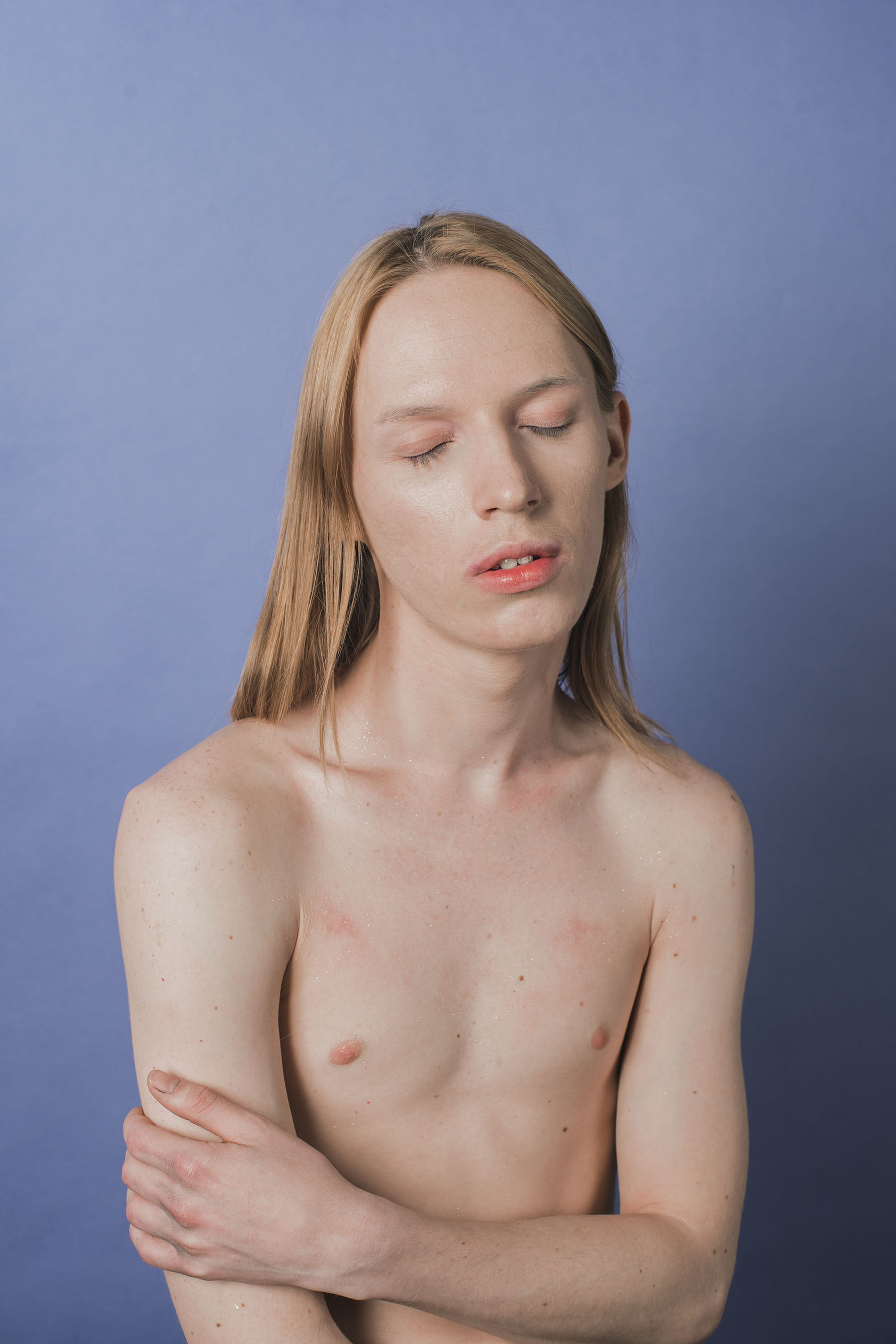
Hi! I`m Nick, I`m 20. I live in Samara and I`m an androgyne-model. My female alter-ego appeared last year. At first I started growing hair, and then I thought: «Why not dressing up as a woman at some shooting?». It was the time of college graduation. There was a great pressure on me coming from students and professors because of my photosets... There were times, when a teacher wouldn`t let me pass an exam just because he saw my photos. After my third shooting I realised I wnt to be a model. It was a desire against everything. My mom always says: «You`re stubborn, and that`s why you are like this».
Once or twice I was mistaken for a girl in public transport. It was nice, people would free a seat for me, saying: «You`re such a beautiful girl, please, sit down». I wanted to say: «Actually, I`m not a girl», but still sat down.
Peeople in Samara are always watching what you wear. And they show you their opinion on that with their looks. I`ve never seen anything like that in Moscow. Once I came to the Red Square when I was in Moscow. My head was covered in clay and pink braids. And noone said anything! If I went out looking like that in Samara, I wouldn`t even get to the bus station. Everyone would judge me, and the old ladies would throw holy water in my face.
The pressure in the society has always existed, even at school my peers didn`t like me. When they went to smoke behind the school building, I was in a dancing class. I think even the most confident man will have problems, when everyone is against him. People would wait for me. Sometimes they would even throw stones in me.




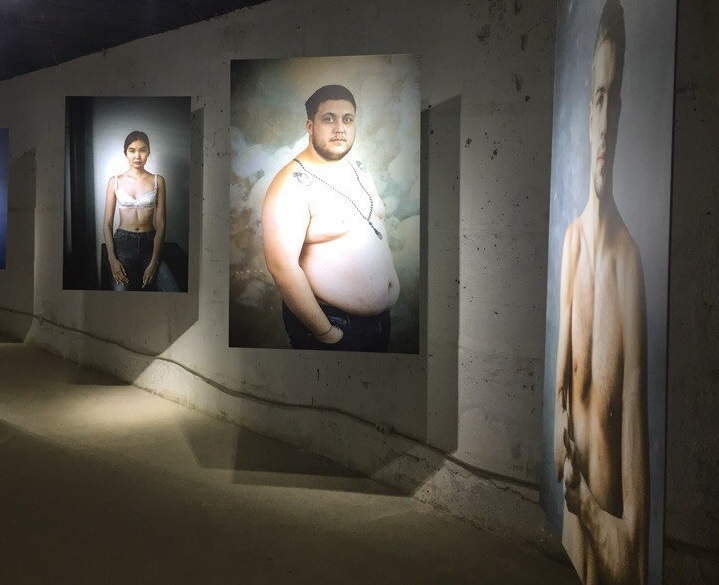






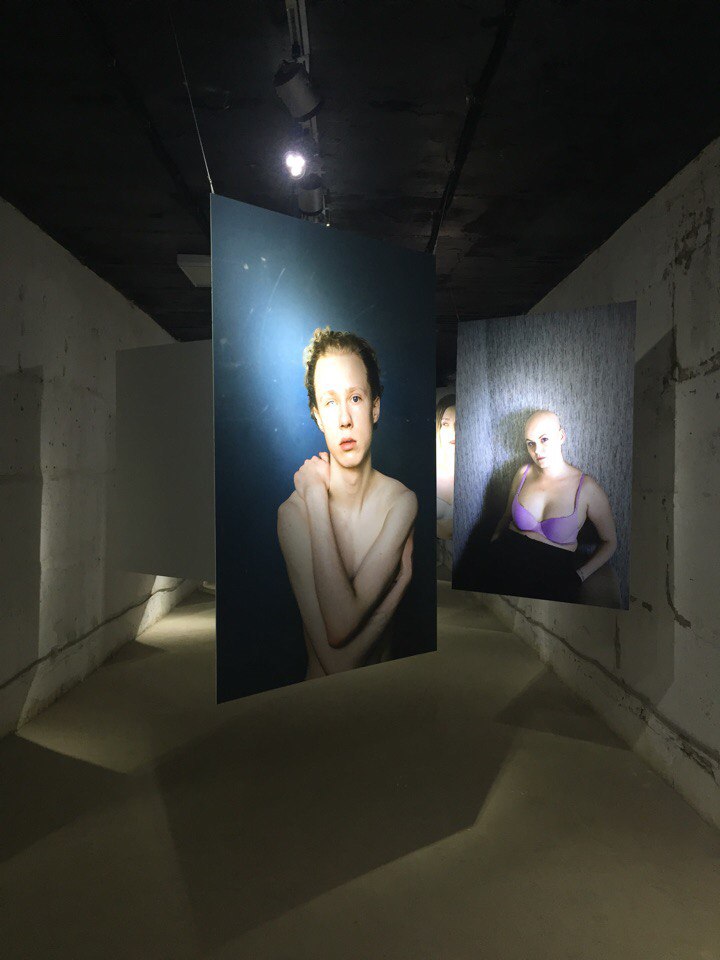
По результатам ваших голосов мы определим лучшие материалы и пригласим победителей на Международный медиа-форум нового поколения «Диалог культур», который пройдет в Эрмитаже.
Хотите стать участником нашего конкурса? Присылайте свои истории о людях и коллективах из России в формате статьи, фоторепортажа или видео.
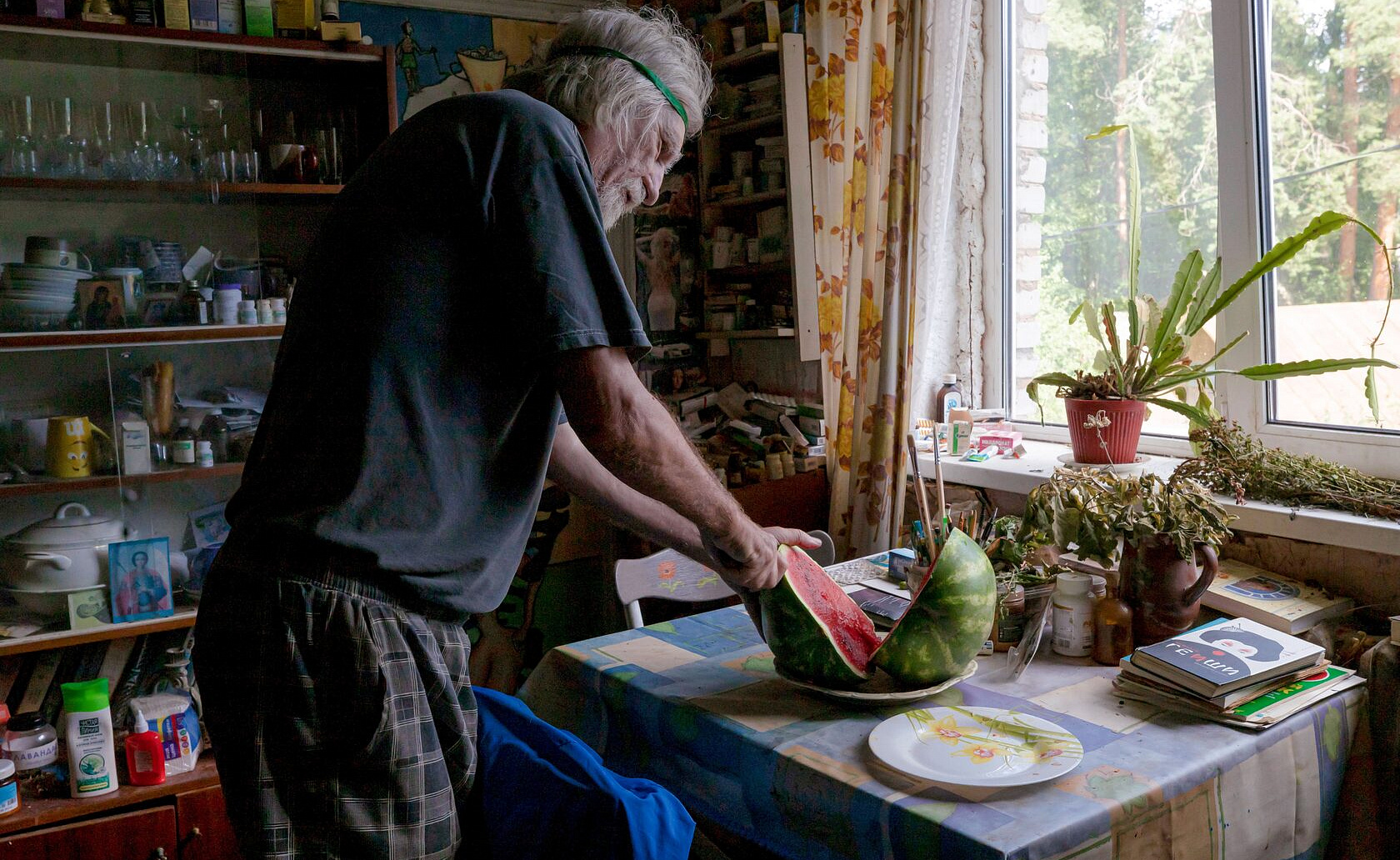
 Всегда в пути
Всегда в пути
«Его внутренняя свобода, детская непосредственность, открытость и доброта привлекают людей не меньше, чем его лирическое очарование его творчества». Фотоистория о самобытном российском художнике, умеющем мечтать и созидать.
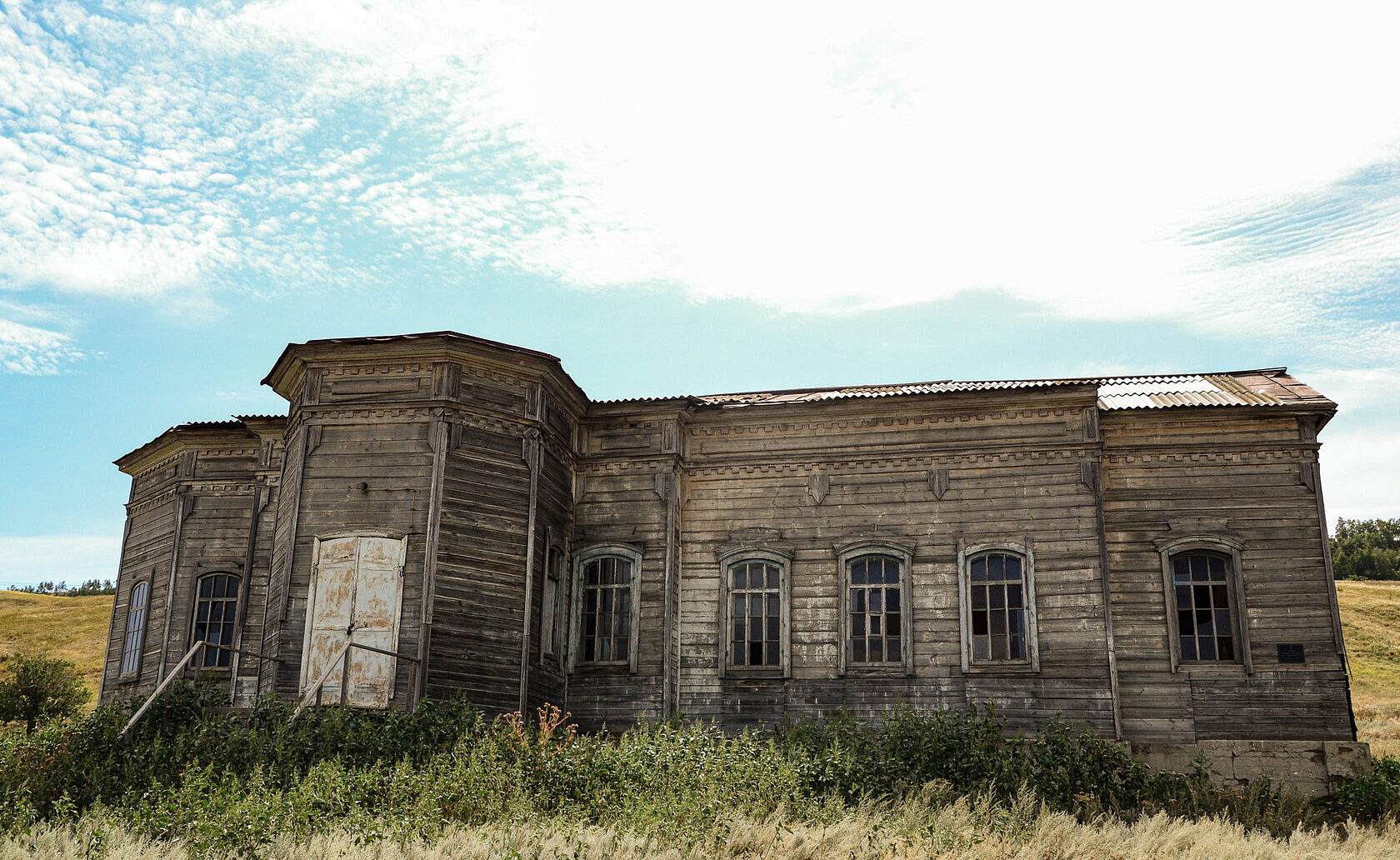
 «У нас осталась только библиотека»
«У нас осталась только библиотека»
В селе Белогорское живут всего 25 человек! Местные старательно берегут то немногое, что осталось — библиотеку. О самобытном месте в Саратовской области рассказала Анна Сахарова.
 Разгуляй
Разгуляй
«Было ощущение, что я знаю всех уже давно и что я здесь желанный гость». Яркая фотоистория о жизни маленького района Пермской области.
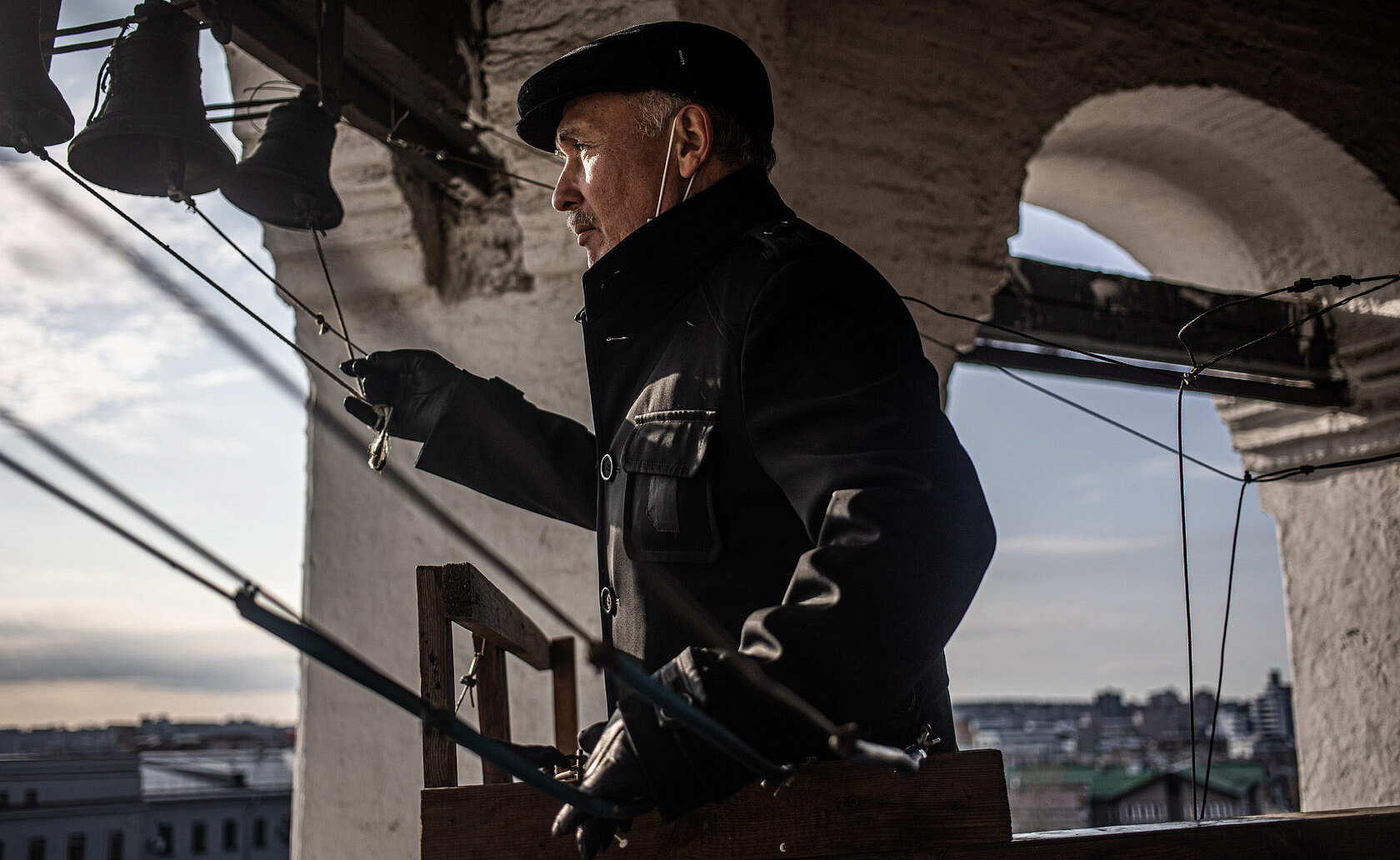
 Благовестник
Благовестник
«В русской традиции каждый колокол — это отдельный оркестр. Он самобытен по звучанию и неповторим». Фотоистория о жизни единственной в Иркутской области школе звонарей.
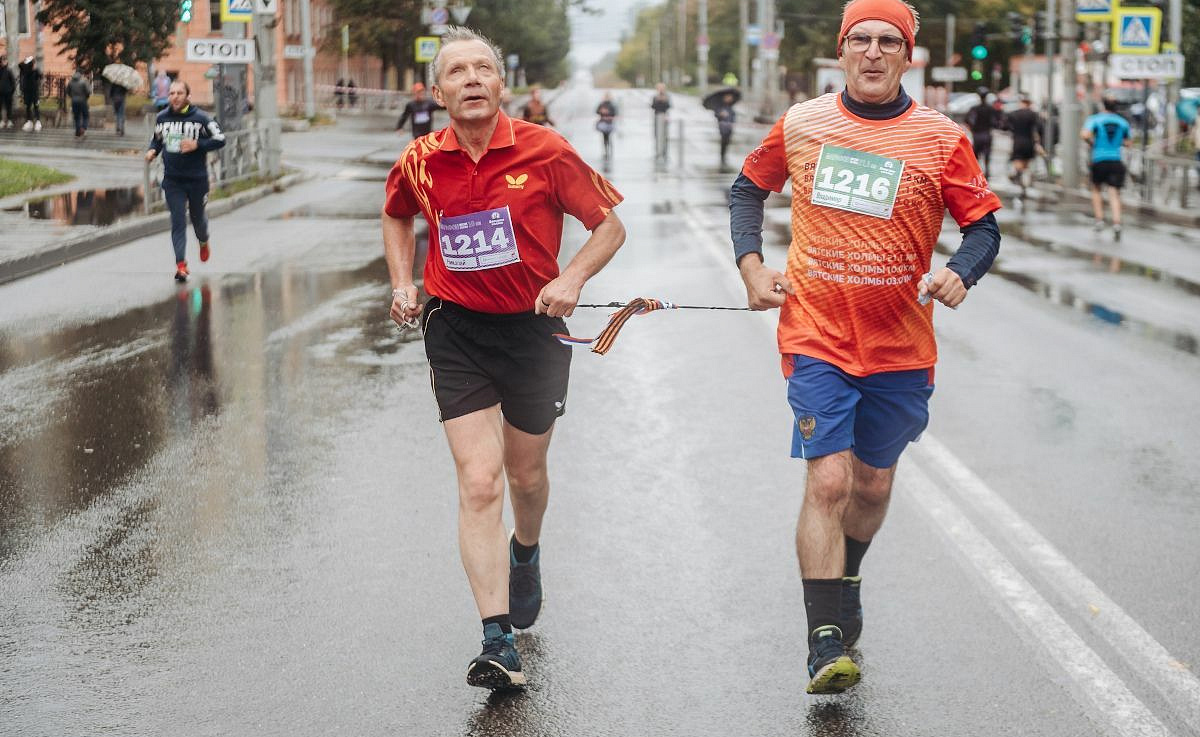
 Первый паралимпиец
Первый паралимпиец
Их часто можно увидеть на крупных стартах по лёгкой атлетике и лыжным гонкам . Всегда вместе, рядом. Во время бега их руки связывает особая верёвочка, она помогает сохранять единый ритм незрячему спортсмену и его лидеру. За плечами атлетов – многокилометровые дистанции, на их счету – множество достижений. Это история об одном из них — о первом вятском паралимпийце, его трудовых буднях и памятнике, им созданном.
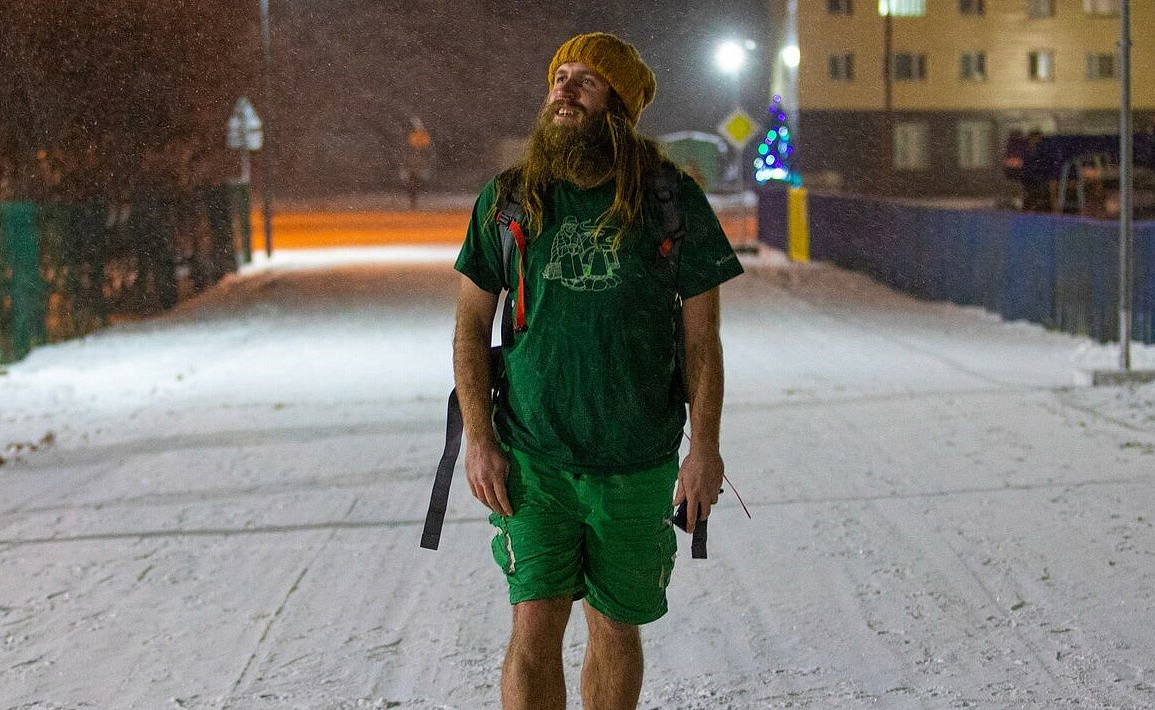
 Суровый русский Диснейленд
Суровый русский Диснейленд
После выхода на экран фильма «Левиафан» турпоток в Мурманскую область вырос в 100 раз. Туристы едут в небольшой рыбачий посёлок Териберка, чтобы увидеть северное сияние. Несмотря на все плюсы бурного развития туризма, происходит губительное воздействие на экосистему посёлка и на привычный ритм жизни местного населения.